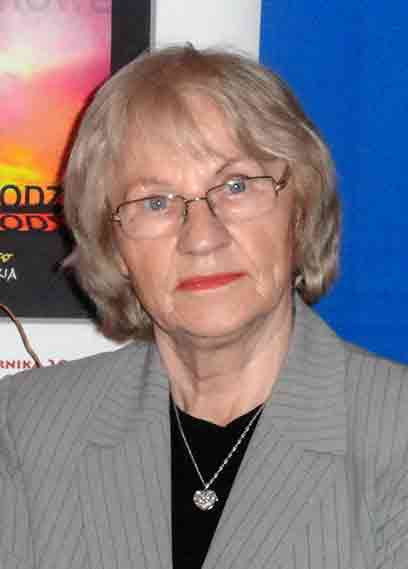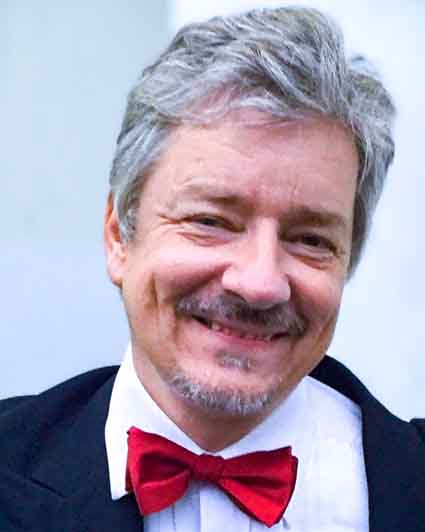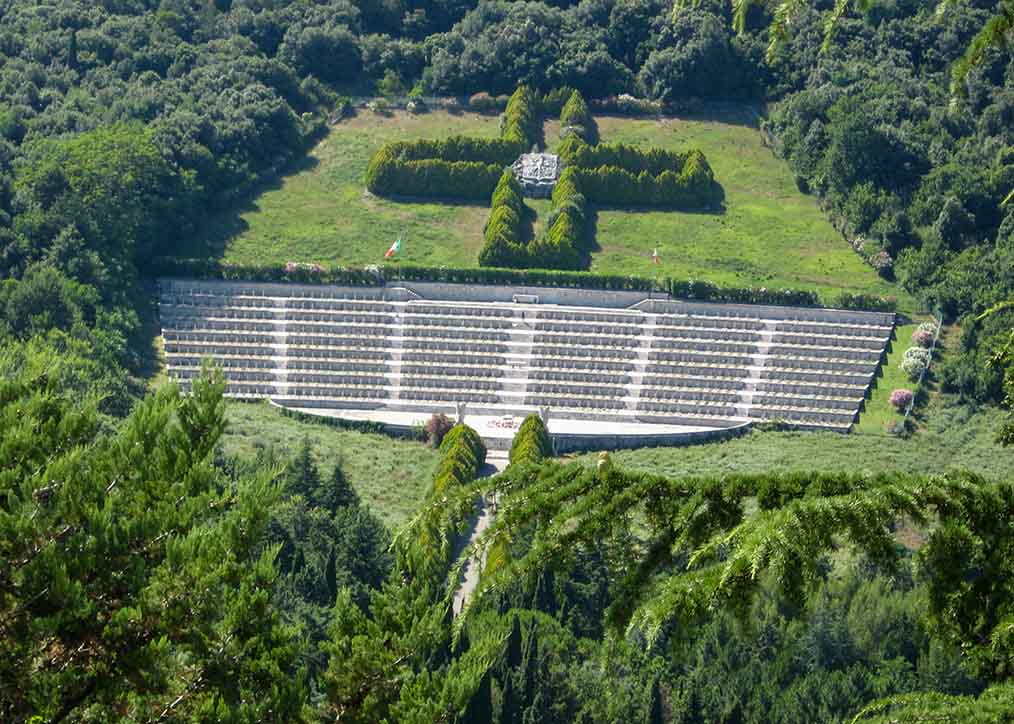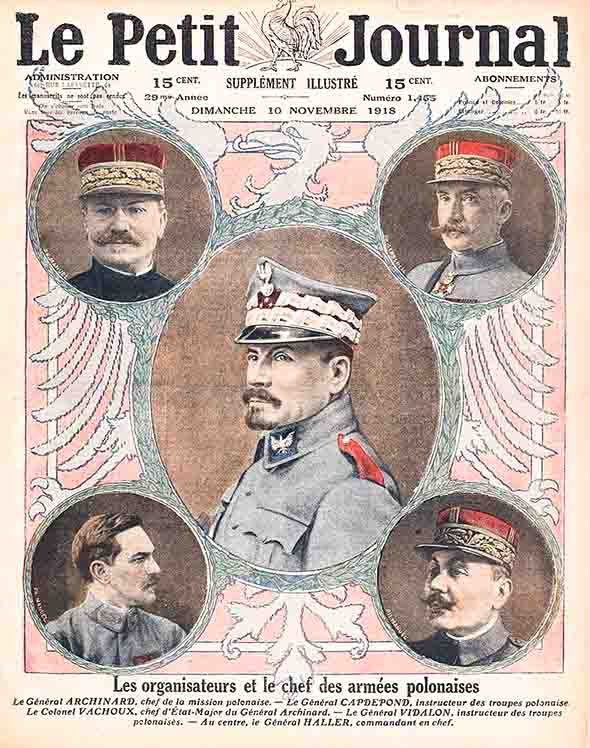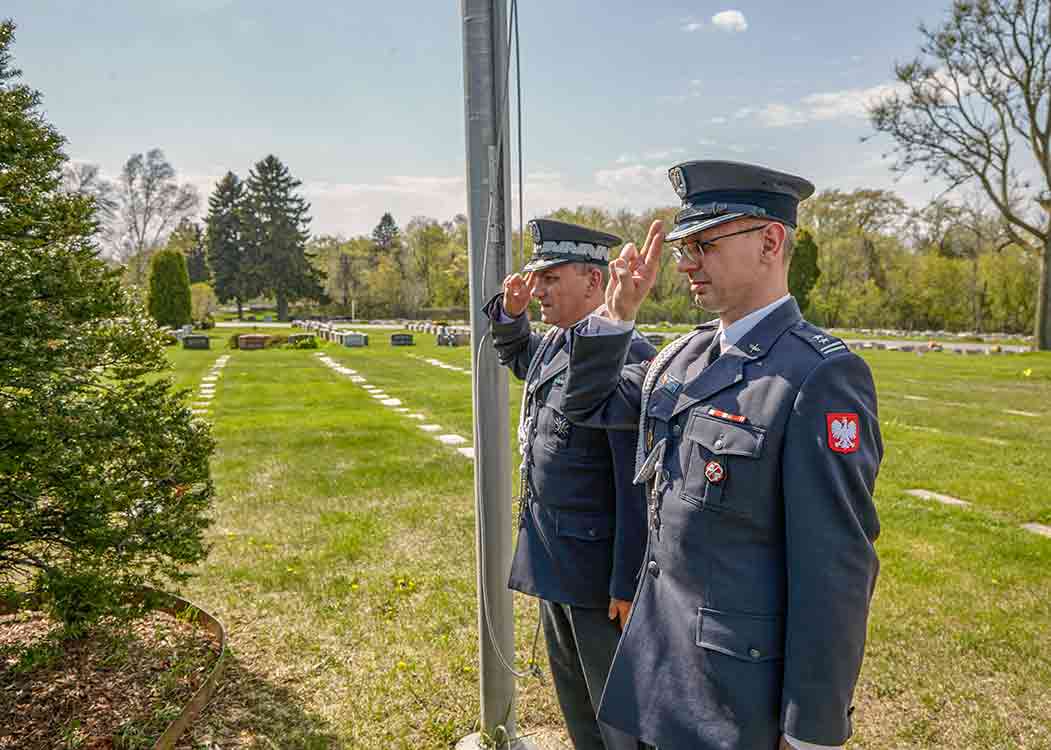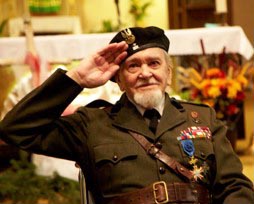The Polish Army is a force that allowed us, Poles, to remain separate and independent from other nations and states, and which covers one of the most important aspects of our history, tradition and culture. The military weaves our past and present with the history of Europe and the world.
The Day of the Polish Army has been celebrated for a long time, although in different periods of history, it had various forms and emphasized, depending on the current political trends, the importance of different events.
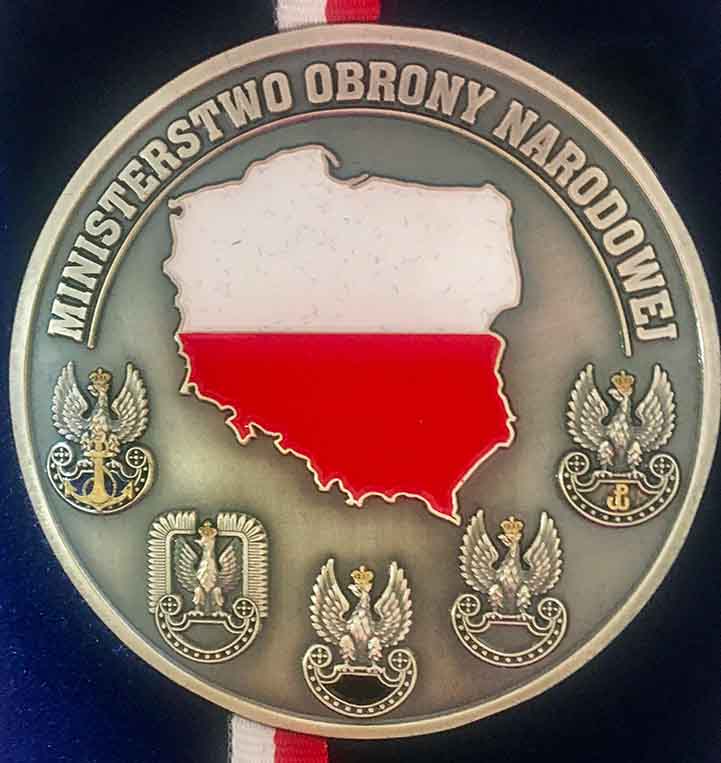
Commemorative medal of the Ministry of National Defense (Photo: K. Murawska)
After regaining independence in 1918 and, afterwards, defending it during the victorious Battle of Warsaw in August 1920, when the borders of the Second Polish Republic were finally established, by the order of the Minister of Military Affairs, General Stanisław Szeptycki of August 4, 1923, the Soldier's Day was established for August 15.
The day was solemnly celebrated during the interwar period, then during World War II in the Polish Armed Forces in the West and in the Polish People's Army until 1946. Later, the Day of the Polish Army was established by the Act of the Sejm on July 30, 1992.
The army is present in the life of almost every Pole in the country and abroad. Especially those who, after the defeat in September, never laid down their arms, fought in France, in the Middle East, at Tobruk, and at Monte Cassino, they carry Poland in their hearts and keep their Polish uniforms with great reverence.
One of the last of them is Leonard Jędrzejczak. His family is an example of all kinds of patriotism. Grandparents emigrated to help the family farm. During his emigration, his father Franciszek Jędrzejczak was an instructor in the Niagara-on-the-Lake camp, from which the newly trained soldiers went to France, to the Blue Army of General Józef Haller, to fight for the independence of Poland, which was revived after 123 years of partitions.
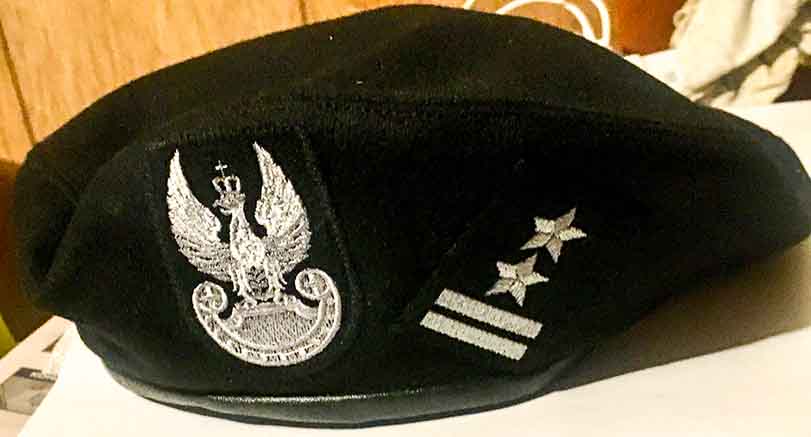
Beret of the newly appointed Lt. Col. Leonard Jędrzejczak (Photo: K. Murawska)
Leonard, as a 17-year-old scout, joined the army on August 30, 1939, after the end of the military training camp. He withdrew with the Armored Brigade of Gen. Maczek to Hungary, made his way to the Middle East, to Beirut, together with the Carpathian Brigade, and then with the Second Corps of Gen. Władysław Anders, followed the combat route of the Polish Army in the West as a communications officer. At the beginning of this wandering military career, his good command of the English language — a rarity among Polish officers at that time — helped him immensely.
He ended his wartime service in April 1945 in Italy. As a communications officer, he was not allowed to return to Poland, then under the communist yoke, so he emigrated to his family in the United States.
In the US, under the command of Scoutmaster Ryszard Kaczorowski — a friend and comrade in arms [the President of the Polish State in Exile –ed.], he created Polish scouting in the USA. Every year, immigrant soldiers also solemnly celebrated the Day of the Army. Today, most of them have already passed into the eternal guard and the celebrations of the Polish Army Day are becoming more and more intimate.
Such was the nature of the joint visit of the delegation of the Embassy of the Republic of Poland from Washington and the Consulate of the Republic of Poland in Chicago on August 13 this year, which came to Milwaukee to honor the last surviving World War II veteran, Major Leonard Jędrzejczak.
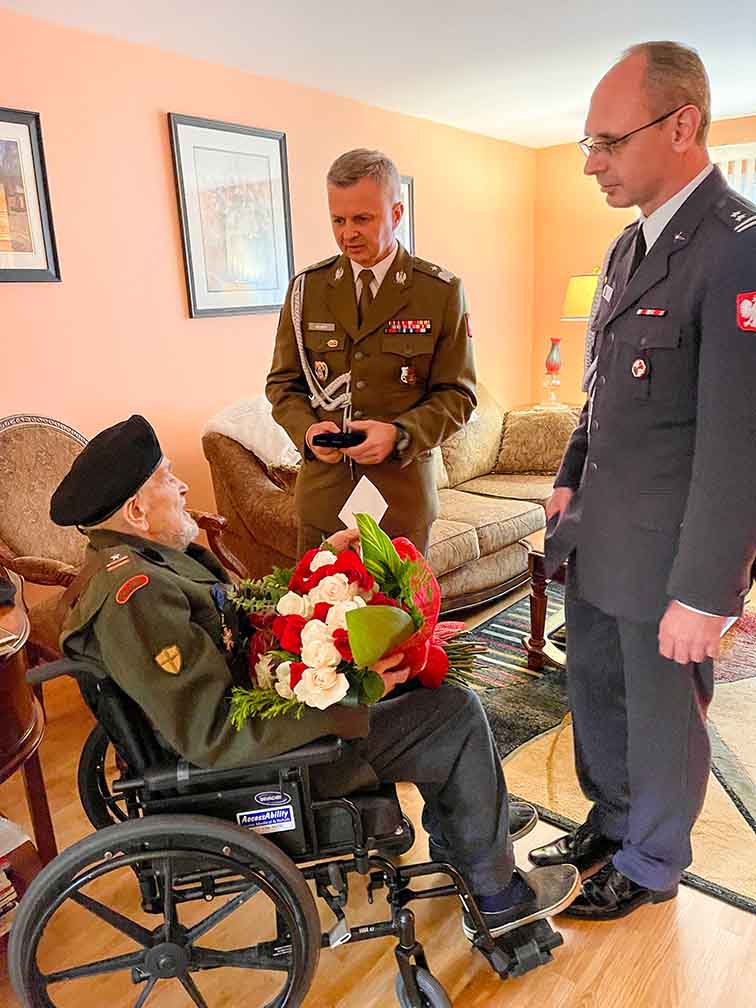
Presentation of the medal of the Ministry of National Defense to the newly appointed Lt. Leonard Jędrzejczak (Photo: A. Woźniewicz)
A delegation consisting of Brigadier General Krzysztof Nolbert – the Military Attaché of the Embassy of the Republic of Poland in Washington, Lt. Col. Karol Budniak – the Deputy Military Attaché, and Agata Grochowska – the Consul for the Polonia in Chicago, came to Milwaukee to present to a World War II veteran, a hero from Tobruk and Monte Cassino, a hero of the war and peaceful times for Poland, an active activist of the Polish community, Major Leonard Jędrzejczak, a nomination for the rank of Lieutenant Colonel of the Polish Army and a commemorative medal of the Ministry of National Defense on the occasion of the Polish Army Day.
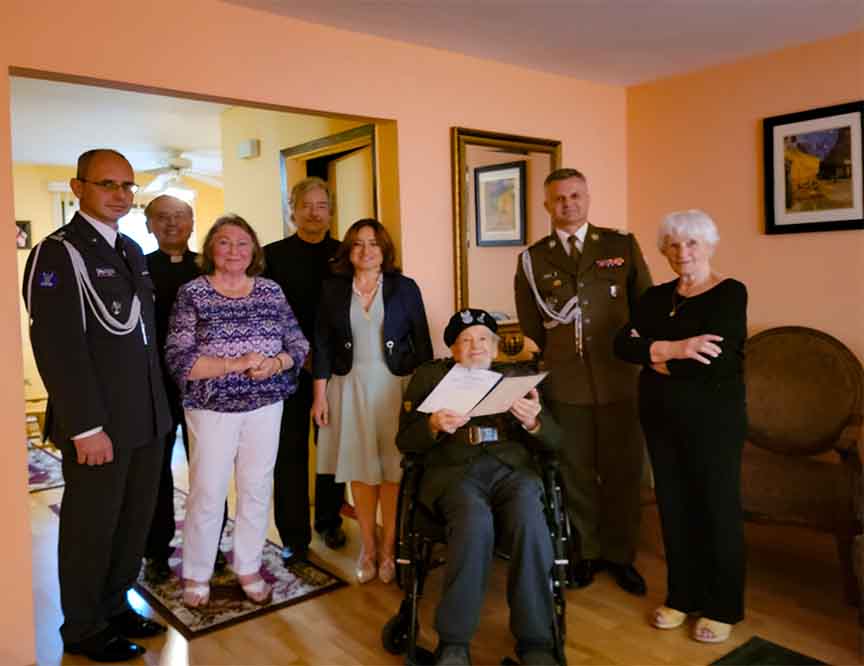
Participants in the meeting (from the left): Lt. Col. Karol Budniak, Fr. Bogusław Czaja, Mrs. Danuta Kwidzyńska, President Andrzej Woźniewicz, Consul Agata Grochowska, Lt. Col. Leonard Jędrzejczak, Brig. Gen. Krzysztof Nolbert, editor Katarzyna Murawska (Photo: L. Fons)
In this close meeting prepared by Kuryer Polski — in particular, by Katarzyna Murawska, a co-founder of Kuryer Polski and the author of the biography of L. Jędrzejczak entitled "Tearing out history" (Wyorywanie historii) — in addition to the above-mentioned members of the state delegation, there was a group of friends: Andrzej Woźniewicz, president of the Polish American Congress in Wisconsin and also a co-founder of Kuryer Polski, Fr. Bogusław Czaja from the National Church in Milwaukee, Ms. Lidia Fons, and Ms. Danuta Kwidzińska.
The meeting was held in a house-warm atmosphere and was enriched with personal memories of Lt. Col. Jędrzejczak about his experiences during the war and the people he met and met. The participants of the meeting were amazed by his ability to tell stories and recall names, facts and exact dates. Let us mention that Lt. Col. Jędrzejczak will soon — on October 8 — be celebrating his hundredth birthday.
On this occasion — and on the occasion of His promotion to the rank of lieutenant colonel — the publishers and editors of Kuryer Polski would like to wish our eldest Wisconsin Veteran good health and many more years to come.



